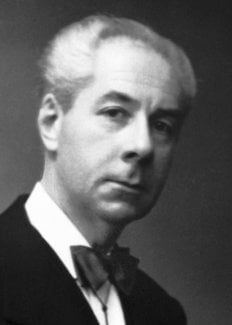Roger Martin du Gard
Biographical

Roger Martin du Gard (1881-1958) was born in Neuilly-sur-Seine, attended two of the finest Paris lycees and, in 1906, was graduated from the École des Chartes with a thesis on an archaeological subject and with the degree of archivist-paleographer. To this training in history and scholarship he attributes his scrupulous realism and attention to minute detail.
Martin du Gard’s first success was the novel Jean Barois, published by his former school friend Gaston Gallimard in 1913. It anticipates some of the thematic material of Les Thibault. Largely in dialogue form, Jean Barois is the story of a life deeply divided by two world views, that of the Catholic Church and that of a freethinking, unflinching, humanistic philosophy of facing and mastering reality. In 1920 he published the peasant farce Le Testament du Père Leleu. He became attached to the circle of the Nouvelle Revue Française and was close to Gide, Copeau, and J. Schlumberger.
After the years of the First World War, which Martin du Gard spent almost entirely in the front lines, he devoted most of his time to the writing of the «roman-fleuve», Les Thibault, which culminates in the three volumes of L’Été 1914 [Summer 1914]. The twelve individual volumes of the series of novels appeared between 1922 and 1940.
Les Thibault is a monumental picture of the world before the outbreak of the First World War. Its rambling plot traces the history of Jacques Thibault, the rebel son of an upper middle-class family, against the background of the more staid destinies of his relatives. The work gives a detailed account of the hero’s despair at the outbreak of fighting and the failure of his insane attempt to stop it. Various minor works, written for distraction or relaxation, include the drama Un Taciturne (1932) [The Silent One], the short novel confdence africaine (1931) [African Secret], and a collection of village sketches, Vieille France (1933) [The Postman]. His Notes sur André Gide 1913-1951 [Recollections of André Gide] appeared in 1951. The complete works of Martin du Gard were published in two volumes in 1955.
This autobiography/biography was written at the time of the award and first published in the book series Les Prix Nobel. It was later edited and republished in Nobel Lectures. To cite this document, always state the source as shown above.
Roger Martin du Gard died on August 22, 1958.
Nobel Prizes and laureates
Six prizes were awarded for achievements that have conferred the greatest benefit to humankind. The 14 laureates' work and discoveries range from quantum tunnelling to promoting democratic rights.
See them all presented here.
